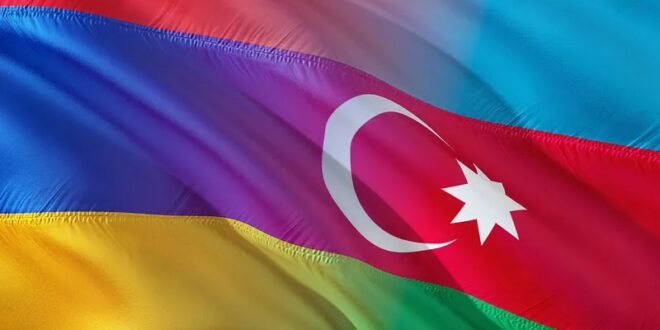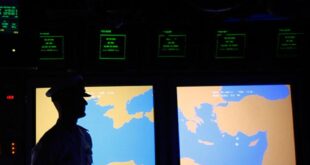On July 15, in a cabinet meeting about the results of the first half of 2022, President Ilham Aliyev of Azerbaijan disclosed some details of the recent negotiations with Russia and Armenia on the withdrawal of the Armenian armed forces from the Karabakh region of Azerbaijan. He reiterated that Armenia was supposed to pull back all its armed forces from the region in accordance with the trilateral statement of the November 10, 2020, signed by the leaders of Armenia and Azerbaijan along with Russia’s President Vladimir Putin and ended the Second Karabakh War.
“Over the one year and eight months since the end of the war, Armenia has yet to fulfil its obligations”, he stressed.
On June 28, Deputy Chief of General Staff of the Armenian Armed Forces Sahak Sahakyan had openly admitted the transfer of Armenian military servicemen to Karabakh when he said in an interview with journalists on June 28 that the Armenian military and political leadership had decided that “contract servicemen will serve in Karabakh [instead of conscripts]”. “Our last call is the summer call of 2020 and demobilization will be held from July 1 to August 30, 2022, there will be no more conscripts in Karabakh,” he said. The colonel said that “a broad package has been created for the attractiveness of the service, according to which contract servicemen will serve”.
Such a blatant disregard of the Armenian leadership to its commitments outraged both the Azerbaijani public and government and raised questions, among others, also about Russia’s role in this process.
President Aliyev likewise criticized Moscow’s unwillingness to guarantee the implementation of the trilateral statement. According to him, a high-ranking Russian official, in the course of his visit to Baku a few months ago, promised to ensure the withdrawal of Armenian armed forces by June 2022. “We are already in the middle of July, but this promise has not been fulfilled”, he protested.
His speech gave us some insights into the situation in Karabakh, Russia’s approach to the trilateral statement, and possible reaction of Azerbaijan if Russia and Armenia continue to refuse to implement the obligations they undertook in the trilateral statement.
First of all, the commitment that the Russian official undertook a few months ago demonstrates that, on the contrary to what is claimed by Armenians and some other observers, there is a consensus between the signatories of the trilateral statement [at least between Russia and Azerbaijan] about the 4th clause of the statement which envisaged the withdrawal of Armenian armed forces from Karabakh in parallel with the deployment of the peacekeeping mission of the Russian Federation. The failure of the Armenian leadership to fulfil this clause is, therefore, a breach of the agreement of November 10 and a grave threat to peace and security in the region.
Second, President Aliyev’s strong-worded statements about this situation reaffirmed Azerbaijan’s determination to ensure the withdrawal of Armenian armed forces from the region. He has made it clear that the existence of the illegal armed forces of Armenia on the territories of Azerbaijan is seen in Baku as the violation of the country’s territorial integrity. No sovereign state in the world would agree with the deployment of illegal armed forces to its territories and Azerbaijan is no exception.
In this context, this issue distinguishes markedly from other elements of the trilateral statement that have yet to be implemented (e.g., the opening of transportation channels). The 4th clause holds the highest potential to cause a military confrontation between the sides and spiral into another full-scale war should it remain unimplemented in the future.
The recent history of the Armenia-Azerbaijan conflict should have made it clear that the misuse of peace negotiations is a risky gamble and could result in an all-out war eventually. President Aliyev mentioned two such cases that reveal a contradiction between the deeds and words of the Armenian government:
(1) The Armenian leadership, on the one hand, declares that Armenia had already recognized Azerbaijan’s territorial integrity in 1992, on the other hand distributes documents in international organizations which claim that “Nagorno-Karabakh Republic became an independent state in 1991”.
(2) There was a verbal agreement amongst the leaders of Armenia, Azerbaijan, and Russia during the talks on the trilateral statement on November 10 that the sides would not raise the status of Karabakh in future talks. Although the Armenian government kept this promise for a while, they have recently restarted talking about it at the highest level, President Aliyev noted.
Therefore, for President Aliyev, despite frequent meetings between the officials of Armenia and Azerbaijan at varying levels and in different locations, there are few positive results that have so far been achieved. For him, the establishment of the international commission on the delimitation of the Armenia-Azerbaijan border and Armenia’s consent to start the peace negotiations on the basis of the five principles Azerbaijan presented in early this year is some of few positive instances.
The Armenian government, however, has yet to establish its working group for peace negotiations, start work on the construction of the railway and highway between the western parts of Republic of Azerbaijan and Nakhchivan Autonomous Republic, and, more importantly, has yet to withdraw its armed forces from the Karabakh region of Azerbaijan.
In this context, it is important that on July 19, a few days after the President Aliyev’s speech, the Armenian government declared that the Armenian armed forces deployed to Karabakh during the Second Karabakh War will be withdrawn and no more Armenian military servicemen will serve there. Hopefully, Armenia will act accordingly and kept its promise this time. This would be conducive to more constructive dialogue between the sides and as such would create a favorable basis for the future of peace negotiations.
 Eurasia Press & News
Eurasia Press & News




